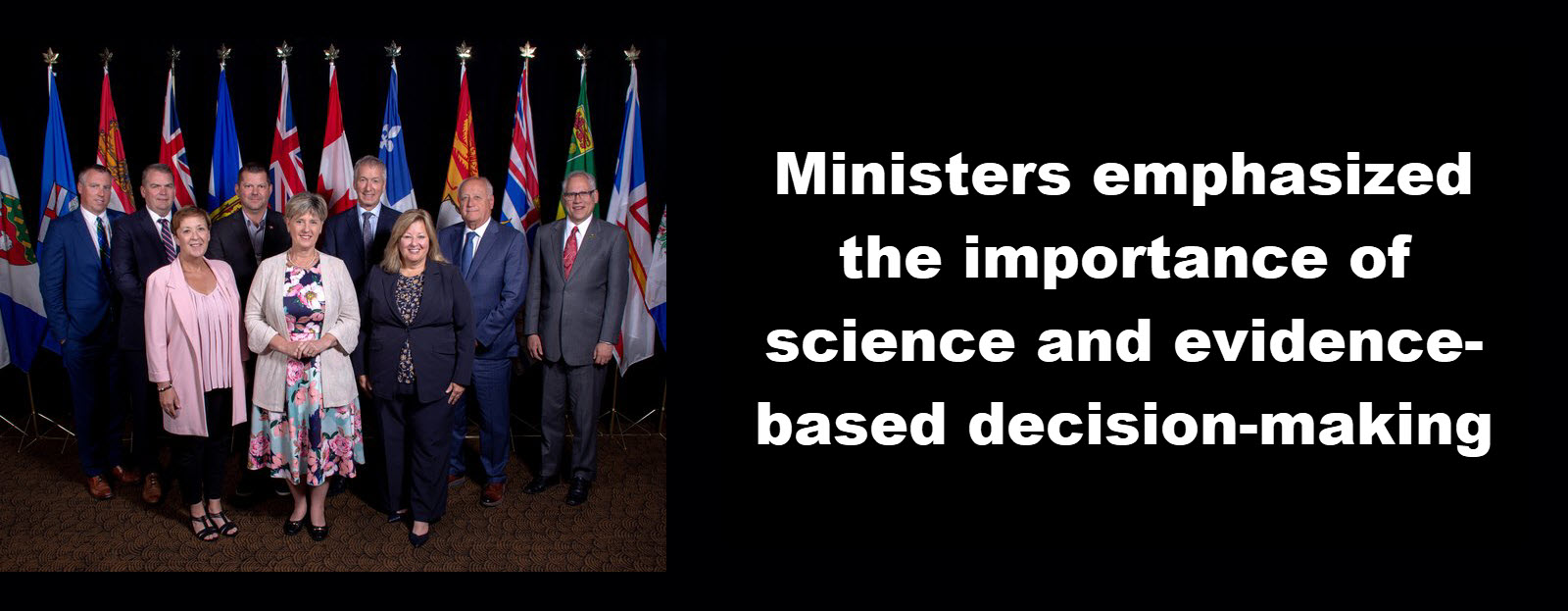The annual conference of Federal, Provincial and Territorial (FPT) Ministers of Agriculture was held in Fredericton, New Brunswick, from July 19 to 21, 2023.
Ministers expressed their concerns regarding the extreme weather impacting producers nationwide, including drought and wildfires. Ministers committed to working together expeditiously to share data and complete AgriRecovery assessments.
According to a media release, Ministers also committed to ensuring that producers have access to a full suite of Business Risk Management (BRM) programs that are timely and reliable. Given this, Ministers committed to continuously improving BRM programs to support farmers and ranchers. To ensure the timeliness, simplicity and predictability of AgriStability, Ministers agreed to implement an optional new model.
Ministers recognized that Canadian producers need practical tools to manage weeds, pests and plant diseases. Ministers agreed that science and evidence-based decision-making on regulating crop protection products is paramount. They also recognized the importance of supporting research into pest management tools, practices and solutions such as biopesticides and integrated pest management approaches. Following the Pest Management Regulatory Agency (PMRA) presentation and recognizing the difficulties faced by our producers, Ministers agreed to create an FPT working group which will explore the challenges of pesticide management.
Ministers agreed that innovation, scientific research and development, and collaboration are vital in increasing productivity and economic growth while protecting the environment. Ministers highlighted the importance of building on a foundation of strengths and expertise from across jurisdictions and noted actions already taking place across the supply chain to reduce greenhouse gas emissions, sequester carbon and improve the environmental and economic sustainability of the sector.
The media release said that Ministers continue to champion the work of industry partners in building a clean future that is both sustainable for our planet and supports farmers’ economic livelihoods. Ministers are committed to working with stakeholders to respond to climate change and extreme weather events, such as drought and wildfires, and meet the growing demands for healthy, sustainable, nutritious food. The federal government presented the Sustainable Agriculture Strategy, and provinces and territories shared their current strategies and initiatives. Ministers emphasized the importance of science and evidence-based decision-making in improving the long-term growth, resilience and sustainability of the agriculture and agri-food sector.
Ministers also discussed labour, including recent disruptions at the Port of Vancouver, Specified Risk Material, Clean Fuel Regulations, and honey bee health. In addition, Ministers highlighted advancements in interprovincial trade pilots and committed to continuing the progress on this issue.
As part of the meeting, the Canadian Federation of Agriculture hosted its annual Roundtable with the Ministers. “Industry and government must work together to best harness the incredible potential agriculture has for the environment, economy, and Canadian society. Canadian agriculture is uniquely positioned to drive the Canadian economy while feeding Canadians and being a powerful tool in the fight against climate change. We can only achieve our shared ambition, positioning Canada as a world leader in sustainable agriculture, a global food provider and significant contributor to global food security, if we work together.” said Keith Currie, CFA President.
Currie further noted, “What we can’t lose sight of is that the Sustainable Agriculture Strategy must create an enabling environment that’s grounded in the understanding that investments in sustainability only take place if they make business sense. We need to see the importance of productivity, profitability, and competitiveness reflected as a central consideration in all aspects of how agriculture can advance its environmental performance.”
Prevention and preparedness planning for African Swine Fever was also discussed. Ministers acknowledged the need for continued strong collaboration between federal, provincial, and territorial governments and industry on developing integrated disease prevention, surveillance and management plans and cost-shared response programming. Ministers recognized the importance of increasing Canada’s readiness and capacity to respond to potential disease outbreaks. They reaffirmed their commitment to collaborate on this issue closely and to engage with key players across the value chain by the fall. Maintaining public confidence in the Canadian food supply and mitigating trade-related market disruptions will be critical, notably by establishing zoning arrangements with our trading partners. Ministers also discussed actions taken already, such as the ongoing work through Animal Health Canada (AHC).
The next Annual FPT Ministers’ meeting will be held in Whitehorse, Yukon, in July 2024.
Related Articles
- Precision Technology for Fertilizer Mixing & Blending Precision agriculture is everywhere, even in fertilizer mixing and blending systems, where automated systems and software-based systems are quickly becoming a crucial element to the industry. (Sponsored Content) N...
- Views, Considerations & Unknowns for 2024 With 2024 upon us, the agriculture trade show and seminar season is now in full swing. By Mitch Rezansoff, Executive Director With 2024 upon us, the agriculture trade show and seminar season is now in full swing....
- Exploring carbon tax effects on a loaf of bread A look at how the carbon tax impacts a simple loaf of bread being produced in Manitoba. According to the Manitoba PCs, a Manitoba farmer earns roughly $0.18 from 550 grams of wheat in producing a single loaf of bread...
- Canadian Foodgrains Bank and Viterra fighting against hunger Canadian Foodgrains Bank, together with Viterra and its volunteer farmers, marks the eighth year of their joint efforts to tackle global hunger, utilizing farmland across Saskatchewan and Alberta. As reported on F...
- Green boost - pulp mill waste transforms soil health and cuts emissions University of Alberta study reveals pulp mill waste enhances soil fertility and reduces greenhouse gases. Over two years, researchers experimented with hybrid poplar tree plantations in northern Alberta, discoveri...
 How to resolve AdBlock issue?
How to resolve AdBlock issue? 


Join the discussion...
You must be logged in as a CAAR member to comment.
Report
My comments